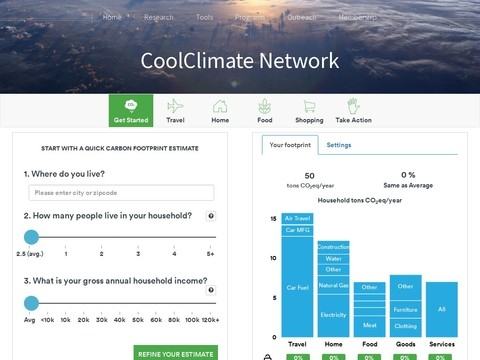Education
We believe firmly that one pillar of our work together is educating ourselves, our congregations, and our legislators. On this page, you'll find links to our partner organizations, videos that members of our team created as we celebrated Earth Day, links to presentations around climate change and creation care as well as educational materials from Metro Nashville and other sources.
West End UMC's Creation Care Short Videos
A Woodland Walk Discovery
Lynn Jobe takes us on a woodland walk and shows us what we are protecting when we talk about protecting the earth.
Bokashi Composting
Ty Finch explains Bokashi Composting Method.
Eliminate Single Use Plastics
Anita Schmid talks about the problems with plastics and poses viable solutions.
Make the Switch
Susan Finch's children teach us that the choice is easy - switch to cloth napkins to save trees!
The 7 R's
Why Advocacy Is Important
Lynn Jobe describes why Advocacy is so important and what bills will help the environment.
Working with and for Nature
Got water causing problems in your yard? Lynn Linebaugh Jones describes how they worked with Cumberland River Compact to find a solution for unwanted water runoff in her yard. And they planted for pollinators.
array (
'5f50141c1280b19ba7b874c4' =>
array (
'_id' =>
MongoId::__set_state(array(
'$id' => '5f50141c1280b19ba7b874c4',
)),
'title' => 'A Woodland Walk Discovery',
'virtual_url' => 'a-woodland-walk-discovery',
'description' => '
Lynn Jobe takes us on a woodland walk and shows us what we are protecting when we talk about protecting the earth.
',
'category' =>
array (
0 =>
array (
'_id' => '625883244c5b61675ed83513',
'_display' => 'Creation Care Videos',
),
),
'remote_url' => '',
'status' => 'Active',
'created_by' =>
MongoId::__set_state(array(
'$id' => '5e7ce49e1280b1423668bcfe',
)),
'created_on' =>
MongoDate::__set_state(array(
'sec' => 1599083548,
'usec' => 436000,
)),
'last_updated_by' =>
MongoId::__set_state(array(
'$id' => '5cb8944cd6940304332b01b1',
)),
'last_updated_on' =>
MongoDate::__set_state(array(
'sec' => 1649967986,
'usec' => 935000,
)),
'_url' => '/creation-care-education/a-woodland-walk-discovery',
'_url2' => '/creation-care-education/a-woodland-walk-discovery',
),
'5f44298fae7c30dfd355789b' =>
array (
'_id' =>
MongoId::__set_state(array(
'$id' => '5f44298fae7c30dfd355789b',
)),
'title' => 'Bokashi Composting',
'virtual_url' => 'bokashi-composting',
'description' => '
Ty Finch explains Bokashi Composting Method.
',
'category' =>
array (
0 =>
array (
'_id' => '625883244c5b61675ed83513',
'_display' => 'Creation Care Videos',
),
),
'remote_url' => '',
'status' => 'Active',
'created_by' =>
MongoId::__set_state(array(
'$id' => '5f35a0751280b165191ed88b',
)),
'created_on' =>
MongoDate::__set_state(array(
'sec' => 1598302607,
'usec' => 57000,
)),
'last_updated_by' =>
MongoId::__set_state(array(
'$id' => '5cb8944cd6940304332b01b1',
)),
'last_updated_on' =>
MongoDate::__set_state(array(
'sec' => 1649967997,
'usec' => 223000,
)),
'_url' => '/creation-care-education/bokashi-composting',
'_url2' => '/creation-care-education/bokashi-composting',
),
'5f4d4dd41280b14352509dcf' =>
array (
'_id' =>
MongoId::__set_state(array(
'$id' => '5f4d4dd41280b14352509dcf',
)),
'title' => 'Eliminate Single Use Plastics',
'virtual_url' => 'eliminate-single-use-plastics',
'description' => '
Anita Schmid talks about the problems with plastics and poses viable solutions.
',
'category' =>
array (
0 =>
array (
'_id' => '625883244c5b61675ed83513',
'_display' => 'Creation Care Videos',
),
),
'remote_url' => '',
'status' => 'Active',
'created_by' =>
MongoId::__set_state(array(
'$id' => '5e7ce49e1280b1423668bcfe',
)),
'created_on' =>
MongoDate::__set_state(array(
'sec' => 1598901716,
'usec' => 802000,
)),
'last_updated_by' =>
MongoId::__set_state(array(
'$id' => '53addab44c5b61ed3f4348ae',
)),
'last_updated_on' =>
MongoDate::__set_state(array(
'sec' => 1650902747,
'usec' => 397000,
)),
'_url' => '/creation-care-education/eliminate-single-use-plastics',
'_url2' => '/creation-care-education/eliminate-single-use-plastics',
),
'5f5013d01280b124a3b87818' =>
array (
'_id' =>
MongoId::__set_state(array(
'$id' => '5f5013d01280b124a3b87818',
)),
'title' => 'Make the Switch',
'virtual_url' => 'make-the-switch-',
'description' => '
Susan Finch\'s children teach us that the choice is easy - switch to cloth napkins to save trees!
',
'category' =>
array (
0 =>
array (
'_id' => '625883244c5b61675ed83513',
'_display' => 'Creation Care Videos',
),
),
'remote_url' => '',
'status' => 'Active',
'created_by' =>
MongoId::__set_state(array(
'$id' => '5e7ce49e1280b1423668bcfe',
)),
'created_on' =>
MongoDate::__set_state(array(
'sec' => 1599083472,
'usec' => 774000,
)),
'last_updated_by' =>
MongoId::__set_state(array(
'$id' => '53addab44c5b61ed3f4348ae',
)),
'last_updated_on' =>
MongoDate::__set_state(array(
'sec' => 1650903118,
'usec' => 496000,
)),
'_url' => '/creation-care-education/make-the-switch-',
'_url2' => '/creation-care-education/make-the-switch-',
),
'5f4d257c1280b154be509dd7' =>
array (
'_id' =>
MongoId::__set_state(array(
'$id' => '5f4d257c1280b154be509dd7',
)),
'title' => 'The 7 R\'s',
'virtual_url' => 'the-7-rs',
'description' => '',
'category' =>
array (
0 =>
array (
'_id' => '625883244c5b61675ed83513',
'_display' => 'Creation Care Videos',
),
),
'remote_url' => 'https://www.facebook.com/146851284892/videos/1553441161486557',
'status' => 'Active',
'created_by' =>
MongoId::__set_state(array(
'$id' => '5e7ce49e1280b1423668bcfe',
)),
'created_on' =>
MongoDate::__set_state(array(
'sec' => 1598891388,
'usec' => 503000,
)),
'last_updated_by' =>
MongoId::__set_state(array(
'$id' => '53addab44c5b61ed3f4348ae',
)),
'last_updated_on' =>
MongoDate::__set_state(array(
'sec' => 1650918845,
'usec' => 608000,
)),
'site_image' =>
array (
'626705c832f2f' =>
array (
'index' => 0,
'type' => 'nocrop',
'url' => '/media/image/_p2i_the-7-rs.jpg',
),
),
'p2i_log' =>
array (
0 =>
array (
'msg' => 'image requested',
'data' => '',
'time' => '15:34:05',
),
1 =>
array (
'msg' => 'request',
'data' =>
array (
'status' => 'processing',
'estimated_need_time' => 50,
),
'time' => '15:34:05',
),
2 =>
array (
'msg' => 'callback_start',
'data' =>
array (
'id' => '5f4d257c1280b154be509dd7',
'result' => '{"status":"finished","duration":10,"ori_url":"https%3A%2F%2Fwww.facebook.com%2F146851284892%2Fvideos%2F1553441161486557","image_url":"https%3A%2F%2Fpage2images.b-cdn.net%2Fccimages%2F26%2F23%2FTtRwV6qSACYz6uA4.jpg","left_calls":"14961"}',
0 => 'p2i_callback',
),
'time' => '15:34:15',
),
3 =>
array (
'msg' => 'done',
'data' =>
array (
'error' => 0,
'msg' => '',
'empty' => 0,
'data' =>
array (
'num_selected' => 1,
'num_modified' => 1,
),
),
'time' => '15:34:16',
),
),
'_url' => '/creation-care-education/the-7-rs',
'_url2' => '/creation-care-education/the-7-rs',
),
'5f4d4974ae7c3059fbffca50' =>
array (
'_id' =>
MongoId::__set_state(array(
'$id' => '5f4d4974ae7c3059fbffca50',
)),
'title' => 'Why Advocacy Is Important',
'virtual_url' => 'why-advocacy-is-important',
'description' => '
Lynn Jobe describes why Advocacy is so important and what bills will help the environment.
',
'category' =>
array (
0 =>
array (
'_id' => '625883244c5b61675ed83513',
'_display' => 'Creation Care Videos',
),
),
'remote_url' => '',
'status' => 'Active',
'created_by' =>
MongoId::__set_state(array(
'$id' => '5e7ce49e1280b1423668bcfe',
)),
'created_on' =>
MongoDate::__set_state(array(
'sec' => 1598900596,
'usec' => 635000,
)),
'last_updated_by' =>
MongoId::__set_state(array(
'$id' => '53addab44c5b61ed3f4348ae',
)),
'last_updated_on' =>
MongoDate::__set_state(array(
'sec' => 1650919052,
'usec' => 567000,
)),
'_url' => '/creation-care-education/why-advocacy-is-important',
'_url2' => '/creation-care-education/why-advocacy-is-important',
),
'5f50036e1280b15a62b874c2' =>
array (
'_id' =>
MongoId::__set_state(array(
'$id' => '5f50036e1280b15a62b874c2',
)),
'title' => 'Working with and for Nature',
'virtual_url' => 'redirecting-water-flow',
'description' => '
Got water causing problems in your yard? Lynn Linebaugh Jones describes how they worked with Cumberland River Compact to find a solution for unwanted water runoff in her yard. And they planted for pollinators.
',
'category' =>
array (
0 =>
array (
'_id' => '625883244c5b61675ed83513',
'_display' => 'Creation Care Videos',
),
),
'remote_url' => '',
'status' => 'Active',
'created_by' =>
MongoId::__set_state(array(
'$id' => '5e7ce49e1280b1423668bcfe',
)),
'created_on' =>
MongoDate::__set_state(array(
'sec' => 1599079278,
'usec' => 739000,
)),
'last_updated_by' =>
MongoId::__set_state(array(
'$id' => '53addab44c5b61ed3f4348ae',
)),
'last_updated_on' =>
MongoDate::__set_state(array(
'sec' => 1650919067,
'usec' => 223000,
)),
'_url' => '/creation-care-education/redirecting-water-flow',
'_url2' => '/creation-care-education/redirecting-water-flow',
),
)
West End UMC's Creation Care Presentations
Climate Change
This overview presentation helps us understand the terminology, science, consequences, and solutions to climate change.
Climate Change Advocacy
Recycling and electric cars just aren’t enough. We need laws and policy! This presentation shows how we can urge legislators to pass laws in line with our United Methodist Social Principles that address the sources of the crisis and that support people and communities through the transition to a sustainable future. WestEnd-May2020.pptx
Climate Justice
Environmental damage also takes a human toll. This presentation helps us see with new eyes how the climate crisis is connected to justice. Our United Methodist Social Principles provide guidance for action. CreationJustice.pptx
Plastic 101
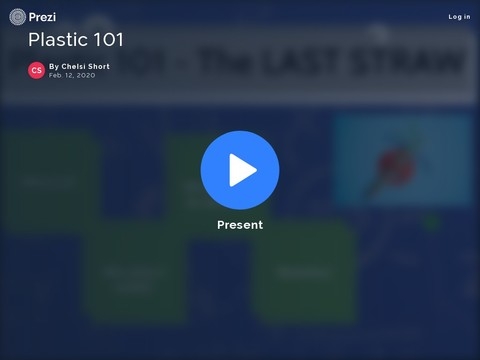
Plastics—especially single-use plastics—fill up our landfills, trash earth and oceans, and harm marine and human life. This presentation uncovers the high cost of plastics and provides some alternatives. (Cick "Learn More" below to be led to the Prezi).
Trees for Now and the Future
Trees breathe, so we can breathe. They are essential to reducing carbon dioxide. However, deforestation is the #3 cause of climate change. The good news is we can help plant and conserve trees—globally and locally—for now and for everyone’s future. Trees.pptx
What Churches Are Doing for the Earth
Churches are God’s people in action. Here are ideas and inspiration from the ways some United Methodist churches are using their assets and the connection to care for the earth.
Whatotherchurchesdoingfortheearth.pptx
See something you want us to do at West End? Let our Creation Care Committee know. Contact the chairperson, Crys Zinkiewicz. (crysz1122@gmail.com).
array (
'5f4d4f111280b1fa2f509e66' =>
array (
'_id' =>
MongoId::__set_state(array(
'$id' => '5f4d4f111280b1fa2f509e66',
)),
'title' => 'Climate Change',
'virtual_url' => 'climate-change-',
'description' => '
This overview presentation helps us understand the terminology, science, consequences, and solutions to climate change.
',
'category' =>
array (
0 =>
array (
'_id' => '6258801d4c5b61815ed8350d',
'_display' => 'Creation Care Education',
),
),
'remote_url' => '',
'status' => 'Active',
'created_by' =>
MongoId::__set_state(array(
'$id' => '5e7ce49e1280b1423668bcfe',
)),
'created_on' =>
MongoDate::__set_state(array(
'sec' => 1598902033,
'usec' => 817000,
)),
'last_updated_by' =>
MongoId::__set_state(array(
'$id' => '5cb8944cd6940304332b01b1',
)),
'last_updated_on' =>
MongoDate::__set_state(array(
'sec' => 1649968087,
'usec' => 861000,
)),
'_url' => '/creation-care-education/climate-change-',
'_url2' => '/creation-care-education/climate-change-',
),
'5f4423a1ae7c30fdcb557867' =>
array (
'_id' =>
MongoId::__set_state(array(
'$id' => '5f4423a1ae7c30fdcb557867',
)),
'title' => 'Climate Change Advocacy',
'virtual_url' => 'creation-care-advocacy-presentation',
'description' => '
Recycling and electric cars just aren’t enough. We need laws and policy! This presentation shows how we can urge legislators to pass laws in line with our United Methodist Social Principles that address the sources of the crisis and that support people and communities through the transition to a sustainable future. WestEnd-May2020.pptx
',
'category' =>
array (
0 =>
array (
'_id' => '6258801d4c5b61815ed8350d',
'_display' => 'Creation Care Education',
),
),
'remote_url' => '',
'status' => 'Active',
'created_by' =>
MongoId::__set_state(array(
'$id' => '5e7ce49e1280b1423668bcfe',
)),
'created_on' =>
MongoDate::__set_state(array(
'sec' => 1598301089,
'usec' => 75000,
)),
'last_updated_by' =>
MongoId::__set_state(array(
'$id' => '5cb8944cd6940304332b01b1',
)),
'last_updated_on' =>
MongoDate::__set_state(array(
'sec' => 1649968730,
'usec' => 767000,
)),
'_url' => '/creation-care-education/creation-care-advocacy-presentation',
'_url2' => '/creation-care-education/creation-care-advocacy-presentation',
),
'5f46bafdae7c30eaf7d85ff5' =>
array (
'_id' =>
MongoId::__set_state(array(
'$id' => '5f46bafdae7c30eaf7d85ff5',
)),
'title' => 'Climate Justice',
'virtual_url' => 'climate-justice',
'description' => '
Environmental damage also takes a human toll. This presentation helps us see with new eyes how the climate crisis is connected to justice. Our United Methodist Social Principles provide guidance for action. CreationJustice.pptx
',
'category' =>
array (
0 =>
array (
'_id' => '6258801d4c5b61815ed8350d',
'_display' => 'Creation Care Education',
),
),
'remote_url' => '',
'status' => 'Active',
'created_by' =>
MongoId::__set_state(array(
'$id' => '5e7ce49e1280b1423668bcfe',
)),
'created_on' =>
MongoDate::__set_state(array(
'sec' => 1598470909,
'usec' => 699000,
)),
'last_updated_by' =>
MongoId::__set_state(array(
'$id' => '53addab44c5b61ed3f4348ae',
)),
'last_updated_on' =>
MongoDate::__set_state(array(
'sec' => 1650899128,
'usec' => 328000,
)),
'_url' => '/creation-care-education/climate-justice',
'_url2' => '/creation-care-education/climate-justice',
),
'5f4422aaae7c30dfbd55787b' =>
array (
'_id' =>
MongoId::__set_state(array(
'$id' => '5f4422aaae7c30dfbd55787b',
)),
'title' => 'Plastic 101',
'virtual_url' => 'plastics-101',
'description' => '
Plastics—especially single-use plastics—fill up our landfills, trash earth and oceans, and harm marine and human life. This presentation uncovers the high cost of plastics and provides some alternatives. (Cick "Learn More" below to be led to the Prezi).
',
'category' =>
array (
0 =>
array (
'_id' => '6258801d4c5b61815ed8350d',
'_display' => 'Creation Care Education',
),
),
'remote_url' => 'https://prezi.com/view/8cCAoeY1zHnNzgSiPfm9/',
'status' => 'Active',
'created_by' =>
MongoId::__set_state(array(
'$id' => '5e7ce49e1280b1423668bcfe',
)),
'created_on' =>
MongoDate::__set_state(array(
'sec' => 1598300842,
'usec' => 634000,
)),
'last_updated_by' =>
MongoId::__set_state(array(
'$id' => '53addab44c5b61ed3f4348ae',
)),
'last_updated_on' =>
MongoDate::__set_state(array(
'sec' => 1650916297,
'usec' => 466000,
)),
'site_image' =>
array (
'6266fbd2c52d1' =>
array (
'index' => 0,
'type' => 'nocrop',
'url' => '/media/image/_p2i_plastics-101.jpg',
),
),
'p2i_log' =>
array (
0 =>
array (
'msg' => 'image requested',
'data' => '',
'time' => '14:51:37',
),
1 =>
array (
'msg' => 'request',
'data' =>
array (
'status' => 'processing',
'estimated_need_time' => 50,
),
'time' => '14:51:37',
),
2 =>
array (
'msg' => 'callback_start',
'data' =>
array (
'id' => '5f4422aaae7c30dfbd55787b',
'result' => '{"status":"finished","duration":9,"ori_url":"https%3A%2F%2Fprezi.com%2Fview%2F8cCAoeY1zHnNzgSiPfm9%2F","image_url":"https%3A%2F%2Fpage2images.b-cdn.net%2Fccimages%2F14%2F49%2Fp5mCDbQrYDXLwq7C.jpg","left_calls":"14976"}',
0 => 'p2i_callback',
),
'time' => '14:51:46',
),
3 =>
array (
'msg' => 'done',
'data' =>
array (
'error' => 0,
'msg' => '',
'empty' => 0,
'data' =>
array (
'num_selected' => 1,
'num_modified' => 1,
),
),
'time' => '14:51:46',
),
),
'_url' => '/creation-care-education/plastics-101',
'_url2' => '/creation-care-education/plastics-101',
),
'5f46ce521280b11aa33d487f' =>
array (
'_id' =>
MongoId::__set_state(array(
'$id' => '5f46ce521280b11aa33d487f',
)),
'title' => 'Trees for Now and the Future',
'virtual_url' => 'trees-',
'description' => '
Trees breathe, so we can breathe. They are essential to reducing carbon dioxide. However, deforestation is the #3 cause of climate change. The good news is we can help plant and conserve trees—globally and locally—for now and for everyone’s future. Trees.pptx
',
'category' =>
array (
0 =>
array (
'_id' => '6258801d4c5b61815ed8350d',
'_display' => 'Creation Care Education',
),
),
'remote_url' => '',
'status' => 'Active',
'created_by' =>
MongoId::__set_state(array(
'$id' => '5e7ce49e1280b1423668bcfe',
)),
'created_on' =>
MongoDate::__set_state(array(
'sec' => 1598475858,
'usec' => 553000,
)),
'last_updated_by' =>
MongoId::__set_state(array(
'$id' => '53addab44c5b61ed3f4348ae',
)),
'last_updated_on' =>
MongoDate::__set_state(array(
'sec' => 1650918953,
'usec' => 878000,
)),
'_url' => '/creation-care-education/trees-',
'_url2' => '/creation-care-education/trees-',
),
'5f46c907ae7c304a61d85fd7' =>
array (
'_id' =>
MongoId::__set_state(array(
'$id' => '5f46c907ae7c304a61d85fd7',
)),
'title' => 'What Churches Are Doing for the Earth',
'virtual_url' => 'what-other-churches-are-doing-for-the-earth',
'description' => '
Churches are God’s people in action. Here are ideas and inspiration from the ways some United Methodist churches are using their assets and the connection to care for the earth.
Whatotherchurchesdoingfortheearth.pptx
See something you want us to do at West End? Let our Creation Care Committee know. Contact the chairperson, Crys Zinkiewicz. (crysz1122@gmail.com).
',
'category' =>
array (
0 =>
array (
'_id' => '6258801d4c5b61815ed8350d',
'_display' => 'Creation Care Education',
),
),
'remote_url' => '',
'status' => 'Active',
'created_by' =>
MongoId::__set_state(array(
'$id' => '5e7ce49e1280b1423668bcfe',
)),
'created_on' =>
MongoDate::__set_state(array(
'sec' => 1598474503,
'usec' => 828000,
)),
'last_updated_by' =>
MongoId::__set_state(array(
'$id' => '53addab44c5b61ed3f4348ae',
)),
'last_updated_on' =>
MongoDate::__set_state(array(
'sec' => 1650919040,
'usec' => 549000,
)),
'_url' => '/creation-care-education/what-other-churches-are-doing-for-the-earth',
'_url2' => '/creation-care-education/what-other-churches-are-doing-for-the-earth',
),
)
Faith-Based Partner Organizations
Climate Academy
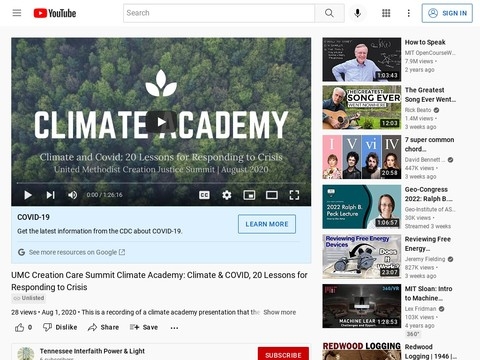
The Tennessee Annual Conference of the UMC and the TN Interfaith Power and Light came together to present this information on Climate and Covid: 20 Lessons for Responding to Crisis. Here is the presentation (ClimateandCovid.pptx) and click on the Learn More to go to the full presentation on YouTube.
Tennessee Annual Conference Creation Care Committee
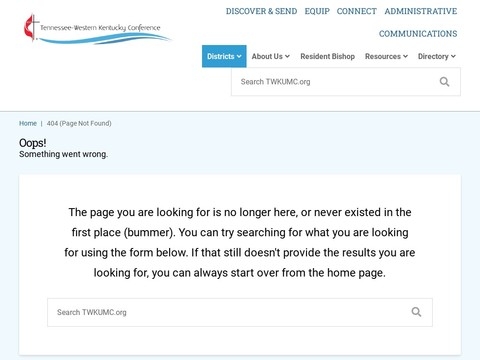
The Tennessee Annual Conference Creation Care Committee is a team of laity and clergy of the Tennessee Annual Conference of the United Methodist Church who are committed to working toward appropriate care of God’s creation.
Tennessee Interfaith Power and Light
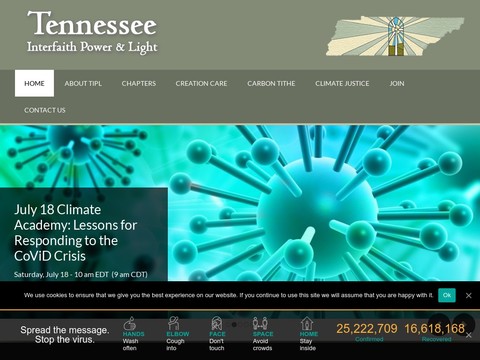
Tennessee Interfaith Power and Light (TIPL) responds to climate change through upholding the sacredness of all life, protection of vulnerable communities, and caring for the Earth. We witness our spiritual values by reducing our carbon emissions within our daily lives, releasing the spiritual power of our faith communities, and by advocating for effective climate protection policies.
United Methodist Creation Justice Movement
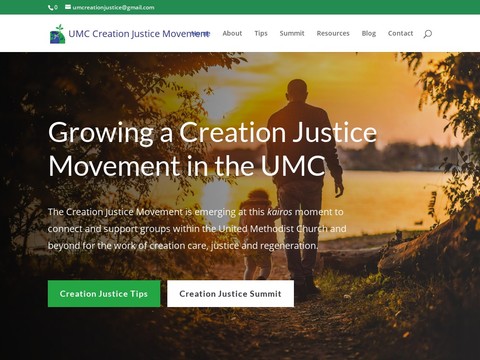
The United Methodist Creation Justice Movement is emerging at this kairos moment to connect and support groups within the United Methodist Church and beyond for the work of creation care, justice, and regeneration. The Movement sponsors the Creation Justice Summit, which will be virtual in October 2020, and publishes a monthly newsletter with a broad range of resources for United Methodist creation justice ministries and congregations.
array (
'5f442d231280b16e746af255' =>
array (
'_id' =>
MongoId::__set_state(array(
'$id' => '5f442d231280b16e746af255',
)),
'title' => 'Climate Academy',
'virtual_url' => 'climate-academy',
'description' => '
The Tennessee Annual Conference of the UMC and the TN Interfaith Power and Light came together to present this information on Climate and Covid: 20 Lessons for Responding to Crisis. Here is the presentation (ClimateandCovid.pptx) and click on the Learn More to go to the full presentation on YouTube.
',
'category' =>
array (
0 =>
array (
'_id' => '6258832d4c5b61a65fd8350d',
'_display' => 'Creation Care Partner Organizations',
),
),
'remote_url' => 'https://www.youtube.com/watch?v=Ev7NtHfo5s4&feature=youtu.be',
'status' => 'Active',
'created_by' =>
MongoId::__set_state(array(
'$id' => '5e7ce49e1280b1423668bcfe',
)),
'created_on' =>
MongoDate::__set_state(array(
'sec' => 1598303523,
'usec' => 92000,
)),
'last_updated_by' =>
MongoId::__set_state(array(
'$id' => '5cb8944cd6940304332b01b1',
)),
'last_updated_on' =>
MongoDate::__set_state(array(
'sec' => 1649968040,
'usec' => 426000,
)),
'site_image' =>
array (
'625883b6112d3' =>
array (
'index' => 0,
'type' => 'nocrop',
'url' => '/media/image/_p2i_climate-academy.jpg',
),
),
'p2i_log' =>
array (
0 =>
array (
'msg' => 'image requested',
'data' => '',
'time' => '15:27:20',
),
1 =>
array (
'msg' => 'request',
'data' =>
array (
'status' => 'processing',
'estimated_need_time' => 50,
),
'time' => '15:27:20',
),
2 =>
array (
'msg' => 'callback_start',
'data' =>
array (
'id' => '5f442d231280b16e746af255',
'result' => '{"status":"finished","duration":13,"ori_url":"https%3A%2F%2Fwww.youtube.com%2Fwatch%3Fv%3DEv7NtHfo5s4%26feature%3Dyoutu.be","image_url":"https%3A%2F%2Fpage2images.b-cdn.net%2Fccimages%2F86%2F2f%2FfeRdzlGOiAf6vB6P.jpg","left_calls":"14992"}',
0 => 'p2i_callback',
),
'time' => '15:27:33',
),
3 =>
array (
'msg' => 'done',
'data' =>
array (
'error' => 0,
'msg' => '',
'empty' => 0,
'data' =>
array (
'num_selected' => 1,
'num_modified' => 1,
),
),
'time' => '15:27:34',
),
),
'_url' => '/creation-care-education/climate-academy',
'_url2' => '/creation-care-education/climate-academy',
),
'5f442595ae7c30dfd355786b' =>
array (
'_id' =>
MongoId::__set_state(array(
'$id' => '5f442595ae7c30dfd355786b',
)),
'title' => 'Tennessee Annual Conference Creation Care Committee',
'virtual_url' => 'tennessee-annual-conference-creation-care-committee',
'description' => '
The Tennessee Annual Conference Creation Care Committee is a team of laity and clergy of the Tennessee Annual Conference of the United Methodist Church who are committed to working toward appropriate care of God’s creation.
',
'category' =>
array (
0 =>
array (
'_id' => '6258832d4c5b61a65fd8350d',
'_display' => 'Creation Care Partner Organizations',
),
),
'remote_url' => 'https://www.tnumc.org/church-and-society/creation-care/',
'status' => 'Active',
'created_by' =>
MongoId::__set_state(array(
'$id' => '5f35a0751280b165191ed88b',
)),
'created_on' =>
MongoDate::__set_state(array(
'sec' => 1598301589,
'usec' => 684000,
)),
'last_updated_by' =>
MongoId::__set_state(array(
'$id' => '53addab44c5b61ed3f4348ae',
)),
'last_updated_on' =>
MongoDate::__set_state(array(
'sec' => 1650916600,
'usec' => 693000,
)),
'site_image' =>
array (
'6266fd4a785ec' =>
array (
'index' => 0,
'type' => 'nocrop',
'url' => '/media/image/_p2i_tennessee-annual-conference-creation-care-committee.jpg',
),
),
'p2i_log' =>
array (
0 =>
array (
'msg' => 'image requested',
'data' => '',
'time' => '14:56:40',
),
1 =>
array (
'msg' => 'request',
'data' =>
array (
'status' => 'processing',
'estimated_need_time' => 50,
),
'time' => '14:56:40',
),
2 =>
array (
'msg' => 'callback_start',
'data' =>
array (
'id' => '5f442595ae7c30dfd355786b',
'result' => '{"status":"finished","duration":81,"ori_url":"https%3A%2F%2Fwww.tnumc.org%2Fchurch-and-society%2Fcreation-care%2F","image_url":"https%3A%2F%2Fpage2images.b-cdn.net%2Fccimages%2F33%2Fad%2F5hQNyCGZt1lYHLwf.jpg","left_calls":"14965"}',
0 => 'p2i_callback',
),
'time' => '14:58:01',
),
3 =>
array (
'msg' => 'done',
'data' =>
array (
'error' => 0,
'msg' => '',
'empty' => 0,
'data' =>
array (
'num_selected' => 1,
'num_modified' => 1,
),
),
'time' => '14:58:02',
),
),
'_url' => '/creation-care-education/tennessee-annual-conference-creation-care-committee',
'_url2' => '/creation-care-education/tennessee-annual-conference-creation-care-committee',
),
'5f4413841280b18bdc6af2ed' =>
array (
'_id' =>
MongoId::__set_state(array(
'$id' => '5f4413841280b18bdc6af2ed',
)),
'title' => 'Tennessee Interfaith Power and Light',
'virtual_url' => 'tennessee-interfaith-power-and-light-',
'description' => '
Tennessee Interfaith Power and Light (TIPL) responds to climate change through upholding the sacredness of all life, protection of vulnerable communities, and caring for the Earth. We witness our spiritual values by reducing our carbon emissions within our daily lives, releasing the spiritual power of our faith communities, and by advocating for effective climate protection policies.
',
'category' =>
array (
0 =>
array (
'_id' => '6258832d4c5b61a65fd8350d',
'_display' => 'Creation Care Partner Organizations',
),
),
'remote_url' => 'https://www.tennipl.org/',
'status' => 'Active',
'created_by' =>
MongoId::__set_state(array(
'$id' => '5e7ce49e1280b1423668bcfe',
)),
'created_on' =>
MongoDate::__set_state(array(
'sec' => 1598296964,
'usec' => 144000,
)),
'last_updated_by' =>
MongoId::__set_state(array(
'$id' => '53addab44c5b61ed3f4348ae',
)),
'last_updated_on' =>
MongoDate::__set_state(array(
'sec' => 1650918819,
'usec' => 125000,
)),
'site_image' =>
array (
'5f4d4aa17d6cb' =>
array (
'index' => 0,
'type' => 'nocrop',
'url' => '/media/image/_p2i_tennessee-interfaith-power-and-light-.jpg',
),
),
'p2i_log' =>
array (
0 =>
array (
'msg' => 'image requested',
'data' => '',
'time' => '15:33:39',
),
1 =>
array (
'msg' => 'request',
'data' =>
array (
'status' => 'processing',
'estimated_need_time' => 50,
),
'time' => '15:33:39',
),
2 =>
array (
'msg' => 'callback_start',
'data' =>
array (
'id' => '5f4413841280b18bdc6af2ed',
'result' => '{"status":"error","duration":18,"ori_url":"https%3A%2F%2Fwww.tennipl.org%2F","errno":404,"msg":"We cannot access target URL. Detail:"}',
0 => 'p2i_callback',
),
'time' => '15:33:58',
),
3 =>
array (
'msg' => 'error: the dreaded something',
'data' =>
array (
'status' => 'error',
'duration' => 18,
'ori_url' => 'https%3A%2F%2Fwww.tennipl.org%2F',
'errno' => 404,
'msg' => 'We cannot access target URL. Detail:',
),
'time' => '15:33:58',
),
),
'_url' => '/creation-care-education/tennessee-interfaith-power-and-light-',
'_url2' => '/creation-care-education/tennessee-interfaith-power-and-light-',
),
'5f47fd091280b18032ab44cf' =>
array (
'_id' =>
MongoId::__set_state(array(
'$id' => '5f47fd091280b18032ab44cf',
)),
'title' => 'United Methodist Creation Justice Movement',
'virtual_url' => 'creation-justice-movement',
'description' => '
The United Methodist Creation Justice Movement is emerging at this kairos moment to connect and support groups within the United Methodist Church and beyond for the work of creation care, justice, and regeneration. The Movement sponsors the Creation Justice Summit, which will be virtual in October 2020, and publishes a monthly newsletter with a broad range of resources for United Methodist creation justice ministries and congregations.
',
'category' =>
array (
0 =>
array (
'_id' => '6258832d4c5b61a65fd8350d',
'_display' => 'Creation Care Partner Organizations',
),
),
'remote_url' => 'https://umcreationjustice.org/',
'status' => 'Active',
'created_by' =>
MongoId::__set_state(array(
'$id' => '5e7ce49e1280b1423668bcfe',
)),
'created_on' =>
MongoDate::__set_state(array(
'sec' => 1598553353,
'usec' => 304000,
)),
'last_updated_by' =>
MongoId::__set_state(array(
'$id' => '53addab44c5b61ed3f4348ae',
)),
'last_updated_on' =>
MongoDate::__set_state(array(
'sec' => 1650919009,
'usec' => 663000,
)),
'site_image' =>
array (
'5f4d4a8aa5c89' =>
array (
'index' => 0,
'type' => 'nocrop',
'url' => '/media/image/_p2i_creation-justice-movement.jpg',
),
),
'p2i_log' =>
array (
0 =>
array (
'msg' => 'image requested',
'data' => '',
'time' => '15:36:49',
),
1 =>
array (
'msg' => 'request',
'data' =>
array (
'status' => 'processing',
'estimated_need_time' => 50,
),
'time' => '15:36:49',
),
2 =>
array (
'msg' => 'callback_start',
'data' =>
array (
'id' => '5f47fd091280b18032ab44cf',
'result' => '{"status":"error","duration":15,"ori_url":"https%3A%2F%2Fumcreationjustice.org%2F","errno":404,"msg":"We cannot access target URL. Detail:"}',
0 => 'p2i_callback',
),
'time' => '15:37:04',
),
3 =>
array (
'msg' => 'error: the dreaded something',
'data' =>
array (
'status' => 'error',
'duration' => 15,
'ori_url' => 'https%3A%2F%2Fumcreationjustice.org%2F',
'errno' => 404,
'msg' => 'We cannot access target URL. Detail:',
),
'time' => '15:37:04',
),
),
'_url' => '/creation-care-education/creation-justice-movement',
'_url2' => '/creation-care-education/creation-justice-movement',
),
)
Environmental Organizations
Local
Citizens' Climate Lobby
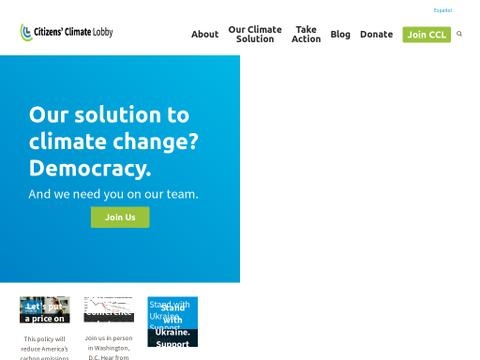
With more than 400 local chapters, including one in Nashville, the focus is building political will for a livable world, especially in lobbying for a national bipartisan solution to climate change. This group is also championing HR 763, the Energy Innovation and Carbon Dividend Act.
Tennessee Conservation Voters
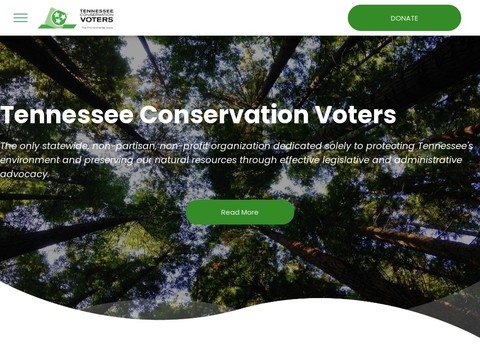
Tennessee Conservation Voters is a coalition of state conservation groups and individuals dedicated to raising voter awareness, advocating for stronger laws, and holding our elected leaders accountable for safeguarding the environment of Tennessee.
Tennessee Environmental Council
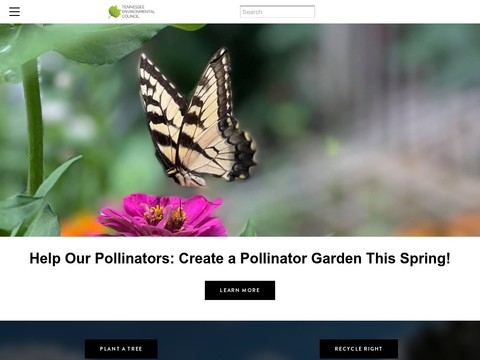
Their Mission: Educating and advocating for the conservation and improvement of Tennessee’s environment, communities, and public health since 1970. Each year in early spring TEC sponsors Tennessee Tree Day providing 1–2 foot saplings for planting for a modest fee.
array (
'5f4d2981ae7c305e77ffca23' =>
array (
'_id' =>
MongoId::__set_state(array(
'$id' => '5f4d2981ae7c305e77ffca23',
)),
'title' => 'Citizens\' Climate Lobby',
'virtual_url' => 'ccl-citizens-climate-lobby',
'description' => '
With more than 400 local chapters, including one in Nashville, the focus is building political will for a livable world, especially in lobbying for a national bipartisan solution to climate change. This group is also championing HR 763, the Energy Innovation and Carbon Dividend Act.
',
'category' =>
array (
0 =>
array (
'_id' => '6258833f4c5b61a65fd8350f',
'_display' => 'Creation Care Local Organization',
),
),
'remote_url' => 'http://citizensclimatelobby.org/',
'status' => 'Active',
'created_by' =>
MongoId::__set_state(array(
'$id' => '5e7ce49e1280b1423668bcfe',
)),
'created_on' =>
MongoDate::__set_state(array(
'sec' => 1598892417,
'usec' => 575000,
)),
'last_updated_by' =>
MongoId::__set_state(array(
'$id' => '5cb8944cd6940304332b01b1',
)),
'last_updated_on' =>
MongoDate::__set_state(array(
'sec' => 1649968021,
'usec' => 869000,
)),
'site_image' =>
array (
'6258875f5d9ad' =>
array (
'index' => 0,
'type' => 'nocrop',
'url' => '/media/image/_p2i_ccl-citizens-climate-lobby.jpg',
),
),
'p2i_log' =>
array (
0 =>
array (
'msg' => 'image requested',
'data' => '',
'time' => '15:27:01',
),
1 =>
array (
'msg' => 'request',
'data' =>
array (
'status' => 'processing',
'estimated_need_time' => 50,
),
'time' => '15:27:02',
),
2 =>
array (
'msg' => 'callback_start',
'data' =>
array (
'id' => '5f4d2981ae7c305e77ffca23',
'result' => '{"status":"finished","duration":216,"ori_url":"http%3A%2F%2Fcitizensclimatelobby.org%2F","image_url":"https%3A%2F%2Fpage2images.b-cdn.net%2Fccimages%2Fd6%2F60%2FJUqRJZ0qmvpLp8G2.jpg","left_calls":"14992"}',
0 => 'p2i_callback',
),
'time' => '15:30:38',
),
3 =>
array (
'msg' => 'done',
'data' =>
array (
'error' => 0,
'msg' => '',
'empty' => 0,
'data' =>
array (
'num_selected' => 1,
'num_modified' => 1,
),
),
'time' => '15:30:39',
),
4 =>
array (
'msg' => 'callback_start',
'data' =>
array (
'id' => '5f4d2981ae7c305e77ffca23',
'result' => '{"status":"finished","duration":965,"ori_url":"http%3A%2F%2Fcitizensclimatelobby.org%2F","image_url":"https%3A%2F%2Fpage2images.b-cdn.net%2Fccimages%2Fd6%2F60%2FJUqRJZ0qmvpLp8G2.jpg","left_calls":"14989"}',
0 => 'p2i_callback',
),
'time' => '15:43:07',
),
5 =>
array (
'msg' => 'done',
'data' =>
array (
'error' => 0,
'msg' => '',
'empty' => 0,
'data' =>
array (
'num_selected' => 1,
'num_modified' => 1,
),
),
'time' => '15:43:11',
),
),
'_url' => '/creation-care-education/ccl-citizens-climate-lobby',
'_url2' => '/creation-care-education/ccl-citizens-climate-lobby',
),
'5f4d29a7ae7c303777ffca2d' =>
array (
'_id' =>
MongoId::__set_state(array(
'$id' => '5f4d29a7ae7c303777ffca2d',
)),
'title' => 'Tennessee Conservation Voters',
'virtual_url' => 'tennessee-conservation-voters',
'description' => '
Tennessee Conservation Voters is a coalition of state conservation groups and individuals dedicated to raising voter awareness, advocating for stronger laws, and holding our elected leaders accountable for safeguarding the environment of Tennessee.
',
'category' =>
array (
0 =>
array (
'_id' => '6258833f4c5b61a65fd8350f',
'_display' => 'Creation Care Local Organization',
),
),
'remote_url' => 'http://tnconservationvoters.org/',
'status' => 'Active',
'created_by' =>
MongoId::__set_state(array(
'$id' => '5e7ce49e1280b1423668bcfe',
)),
'created_on' =>
MongoDate::__set_state(array(
'sec' => 1598892455,
'usec' => 465000,
)),
'last_updated_by' =>
MongoId::__set_state(array(
'$id' => '53addab44c5b61ed3f4348ae',
)),
'last_updated_on' =>
MongoDate::__set_state(array(
'sec' => 1650916677,
'usec' => 224000,
)),
'site_image' =>
array (
'6266fd5c04f04' =>
array (
'index' => 0,
'type' => 'nocrop',
'url' => '/media/image/_p2i_tennessee-conservation-voters.jpg',
),
),
'p2i_log' =>
array (
0 =>
array (
'msg' => 'image requested',
'data' => '',
'time' => '14:57:57',
),
1 =>
array (
'msg' => 'request',
'data' =>
array (
'status' => 'processing',
'estimated_need_time' => 50,
),
'time' => '14:57:57',
),
2 =>
array (
'msg' => 'callback_start',
'data' =>
array (
'id' => '5f4d29a7ae7c303777ffca2d',
'result' => '{"status":"finished","duration":22,"ori_url":"http%3A%2F%2Ftnconservationvoters.org%2F","image_url":"https%3A%2F%2Fpage2images.b-cdn.net%2Fccimages%2Fab%2Fef%2FfRYLY7hC5UircE1s.jpg","left_calls":"14964"}',
0 => 'p2i_callback',
),
'time' => '14:58:19',
),
3 =>
array (
'msg' => 'done',
'data' =>
array (
'error' => 0,
'msg' => '',
'empty' => 0,
'data' =>
array (
'num_selected' => 1,
'num_modified' => 1,
),
),
'time' => '14:58:20',
),
),
'_url' => '/creation-care-education/tennessee-conservation-voters',
'_url2' => '/creation-care-education/tennessee-conservation-voters',
),
'5f4d29261280b1c0be509e04' =>
array (
'_id' =>
MongoId::__set_state(array(
'$id' => '5f4d29261280b1c0be509e04',
)),
'title' => 'Tennessee Environmental Council',
'virtual_url' => 'tennessee-environmental-council-',
'description' => '
Their Mission: Educating and advocating for the conservation and improvement of Tennessee’s environment, communities, and public health since 1970. Each year in early spring TEC sponsors Tennessee Tree Day providing 1–2 foot saplings for planting for a modest fee.
',
'category' =>
array (
0 =>
array (
'_id' => '6258833f4c5b61a65fd8350f',
'_display' => 'Creation Care Local Organization',
),
),
'remote_url' => 'http://tectn.org/',
'status' => 'Active',
'created_by' =>
MongoId::__set_state(array(
'$id' => '5e7ce49e1280b1423668bcfe',
)),
'created_on' =>
MongoDate::__set_state(array(
'sec' => 1598892326,
'usec' => 263000,
)),
'last_updated_by' =>
MongoId::__set_state(array(
'$id' => '53addab44c5b61ed3f4348ae',
)),
'last_updated_on' =>
MongoDate::__set_state(array(
'sec' => 1650916696,
'usec' => 996000,
)),
'site_image' =>
array (
'6266fd62723b1' =>
array (
'index' => 0,
'type' => 'nocrop',
'url' => '/media/image/_p2i_tennessee-environmental-council-.jpg',
),
),
'p2i_log' =>
array (
0 =>
array (
'msg' => 'image requested',
'data' => '',
'time' => '14:58:17',
),
1 =>
array (
'msg' => 'request',
'data' =>
array (
'status' => 'processing',
'estimated_need_time' => 50,
),
'time' => '14:58:17',
),
2 =>
array (
'msg' => 'callback_start',
'data' =>
array (
'id' => '5f4d29261280b1c0be509e04',
'result' => '{"status":"finished","duration":8,"ori_url":"http%3A%2F%2Ftectn.org%2F","image_url":"https%3A%2F%2Fpage2images.b-cdn.net%2Fccimages%2Fdd%2F94%2FLpcQSLXFwRTltfCE.jpg","left_calls":"14964"}',
0 => 'p2i_callback',
),
'time' => '14:58:25',
),
3 =>
array (
'msg' => 'done',
'data' =>
array (
'error' => 0,
'msg' => '',
'empty' => 0,
'data' =>
array (
'num_selected' => 1,
'num_modified' => 1,
),
),
'time' => '14:58:26',
),
),
'_url' => '/creation-care-education/tennessee-environmental-council-',
'_url2' => '/creation-care-education/tennessee-environmental-council-',
),
)
National and Beyond
Environmental Defense Fund
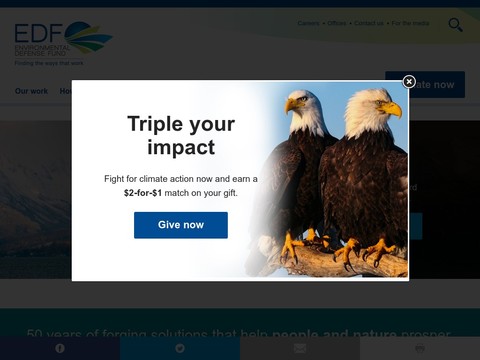
This environmental advocacy group is known for its work on issues including global warming, ecosystem restoration, oceans, and human health, and advocates using sound science, economics and law to find environmental solutions that work.
Oceana: Protecting the World's Oceans
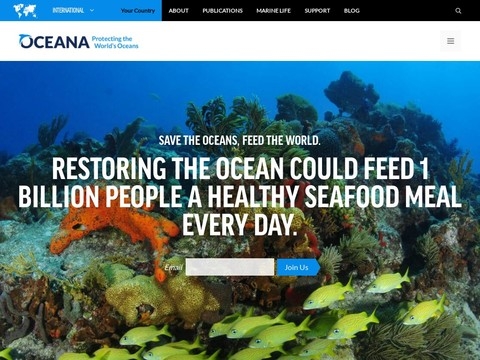
Oceans cover 71 percent of the globe and play a central role in the world's natural systems, like regulating our climate and absorbing carbon dioxide. They also provide livelihoods to countless fishermen and others around the world and feed hundreds of millions of people. Unfortunately, the oceans are in trouble.
Union of Concerned Scientists
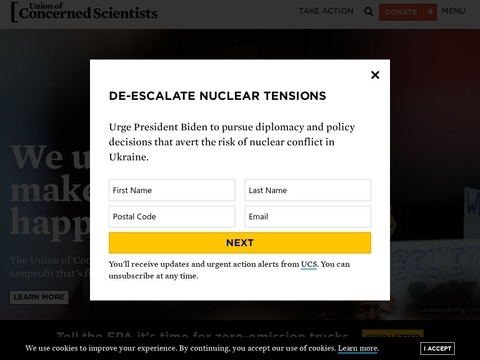
Science for a healthy planet and safer world: We seek the truth, share information, and let our findings guide our conclusions. We act by mobilizing scientists and combining their voices with those of advocates, educators, business people, and other concerned citizens.
array (
'5f4d2a271280b1fdb7509e3b' =>
array (
'_id' =>
MongoId::__set_state(array(
'$id' => '5f4d2a271280b1fdb7509e3b',
)),
'title' => 'Environmental Defense Fund',
'virtual_url' => 'environmental-defense-fund',
'description' => '
This environmental advocacy group is known for its work on issues including global warming, ecosystem restoration, oceans, and human health, and advocates using sound science, economics and law to find environmental solutions that work.
',
'category' =>
array (
0 =>
array (
'_id' => '625883484c5b61b95fd8350d',
'_display' => 'Creation Care National Organization',
),
),
'remote_url' => 'http://edf.org/',
'status' => 'Active',
'created_by' =>
MongoId::__set_state(array(
'$id' => '5e7ce49e1280b1423668bcfe',
)),
'created_on' =>
MongoDate::__set_state(array(
'sec' => 1598892583,
'usec' => 284000,
)),
'last_updated_by' =>
MongoId::__set_state(array(
'$id' => '53addab44c5b61ed3f4348ae',
)),
'last_updated_on' =>
MongoDate::__set_state(array(
'sec' => 1650902767,
'usec' => 979000,
)),
'site_image' =>
array (
'5f4d2a324a7a9' =>
array (
'index' => 0,
'type' => 'nocrop',
'url' => '/media/image/_p2i_environmental-defense-fund.jpg',
),
),
'p2i_log' =>
array (
0 =>
array (
'msg' => 'image requested',
'data' => '',
'time' => '11:06:08',
),
1 =>
array (
'msg' => 'request',
'data' =>
array (
'status' => 'processing',
'estimated_need_time' => 50,
),
'time' => '11:06:08',
),
2 =>
array (
'msg' => 'callback_start',
'data' =>
array (
'id' => '5f4d2a271280b1fdb7509e3b',
'result' => '{"status":"error","duration":17,"ori_url":"http%3A%2F%2Fedf.org%2F","errno":404,"msg":"We cannot access target URL. Detail:"}',
0 => 'p2i_callback',
),
'time' => '11:06:25',
),
3 =>
array (
'msg' => 'error: the dreaded something',
'data' =>
array (
'status' => 'error',
'duration' => 17,
'ori_url' => 'http%3A%2F%2Fedf.org%2F',
'errno' => 404,
'msg' => 'We cannot access target URL. Detail:',
),
'time' => '11:06:25',
),
),
'_url' => '/creation-care-education/environmental-defense-fund',
'_url2' => '/creation-care-education/environmental-defense-fund',
),
'5f4d29d1ae7c30ce9affc9b0' =>
array (
'_id' =>
MongoId::__set_state(array(
'$id' => '5f4d29d1ae7c30ce9affc9b0',
)),
'title' => 'Oceana: Protecting the World\'s Oceans',
'virtual_url' => 'oceana-protecting-the-worlds-oceans',
'description' => '
Oceans cover 71 percent of the globe and play a central role in the world\'s natural systems, like regulating our climate and absorbing carbon dioxide. They also provide livelihoods to countless fishermen and others around the world and feed hundreds of millions of people. Unfortunately, the oceans are in trouble.
',
'category' =>
array (
0 =>
array (
'_id' => '625883484c5b61b95fd8350d',
'_display' => 'Creation Care National Organization',
),
),
'remote_url' => 'http://oceana.org/',
'status' => 'Active',
'created_by' =>
MongoId::__set_state(array(
'$id' => '5e7ce49e1280b1423668bcfe',
)),
'created_on' =>
MongoDate::__set_state(array(
'sec' => 1598892497,
'usec' => 767000,
)),
'last_updated_by' =>
MongoId::__set_state(array(
'$id' => '53addab44c5b61ed3f4348ae',
)),
'last_updated_on' =>
MongoDate::__set_state(array(
'sec' => 1650916120,
'usec' => 408000,
)),
'site_image' =>
array (
'6266fb41060ab' =>
array (
'index' => 0,
'type' => 'nocrop',
'url' => '/media/image/_p2i_oceana-protecting-the-worlds-oceans.jpg',
),
),
'p2i_log' =>
array (
0 =>
array (
'msg' => 'image requested',
'data' => '',
'time' => '14:48:40',
),
1 =>
array (
'msg' => 'request',
'data' =>
array (
'status' => 'processing',
'estimated_need_time' => 50,
),
'time' => '14:48:40',
),
2 =>
array (
'msg' => 'callback_start',
'data' =>
array (
'id' => '5f4d29d1ae7c30ce9affc9b0',
'result' => '{"status":"finished","duration":40,"ori_url":"http%3A%2F%2Foceana.org%2F","image_url":"https%3A%2F%2Fpage2images.b-cdn.net%2Fccimages%2F83%2Fe9%2FhfJGlwZLn06jLGuI.jpg","left_calls":"14978"}',
0 => 'p2i_callback',
),
'time' => '14:49:20',
),
3 =>
array (
'msg' => 'done',
'data' =>
array (
'error' => 0,
'msg' => '',
'empty' => 0,
'data' =>
array (
'num_selected' => 1,
'num_modified' => 1,
),
),
'time' => '14:49:21',
),
),
'_url' => '/creation-care-education/oceana-protecting-the-worlds-oceans',
'_url2' => '/creation-care-education/oceana-protecting-the-worlds-oceans',
),
'5f4d2a6bae7c304e47ffcb0e' =>
array (
'_id' =>
MongoId::__set_state(array(
'$id' => '5f4d2a6bae7c304e47ffcb0e',
)),
'title' => 'Union of Concerned Scientists',
'virtual_url' => 'union-of-concerned-scientists',
'description' => '
Science for a healthy planet and safer world: We seek the truth, share information, and let our findings guide our conclusions. We act by mobilizing scientists and combining their voices with those of advocates, educators, business people, and other concerned citizens.
',
'category' =>
array (
0 =>
array (
'_id' => '625883484c5b61b95fd8350d',
'_display' => 'Creation Care National Organization',
),
),
'remote_url' => 'http://ucsusa.org/',
'status' => 'Active',
'created_by' =>
MongoId::__set_state(array(
'$id' => '5e7ce49e1280b1423668bcfe',
)),
'created_on' =>
MongoDate::__set_state(array(
'sec' => 1598892651,
'usec' => 87000,
)),
'last_updated_by' =>
MongoId::__set_state(array(
'$id' => '53addab44c5b61ed3f4348ae',
)),
'last_updated_on' =>
MongoDate::__set_state(array(
'sec' => 1650918973,
'usec' => 998000,
)),
'site_image' =>
array (
'62670651d8ecf' =>
array (
'index' => 0,
'type' => 'nocrop',
'url' => '/media/image/_p2i_union-of-concerned-scientists.jpg',
),
),
'p2i_log' =>
array (
0 =>
array (
'msg' => 'image requested',
'data' => '',
'time' => '15:36:14',
),
1 =>
array (
'msg' => 'request',
'data' =>
array (
'status' => 'processing',
'estimated_need_time' => 50,
),
'time' => '15:36:14',
),
2 =>
array (
'msg' => 'callback_start',
'data' =>
array (
'id' => '5f4d2a6bae7c304e47ffcb0e',
'result' => '{"status":"finished","duration":18,"ori_url":"http%3A%2F%2Fucsusa.org%2F","image_url":"https%3A%2F%2Fpage2images.b-cdn.net%2Fccimages%2Ffd%2Fcc%2FPFLmwqjdCINJSioQ.jpg","left_calls":"14957"}',
0 => 'p2i_callback',
),
'time' => '15:36:33',
),
3 =>
array (
'msg' => 'done',
'data' =>
array (
'error' => 0,
'msg' => '',
'empty' => 0,
'data' =>
array (
'num_selected' => 1,
'num_modified' => 1,
),
),
'time' => '15:36:33',
),
),
'_url' => '/creation-care-education/union-of-concerned-scientists',
'_url2' => '/creation-care-education/union-of-concerned-scientists',
),
)
Additional Resources
Carbon Calculator
Every Day Eco
Every Day Eco is a 2-minute read, curated with uplifting news, eco-friendly tips, and global stories in hopes that it will bring you some happiness and inspiration. Only the good stuff! You can send an email to shayne@everyday.eco and ask specifically for Every Day Eco.
Metro Nashville Composting
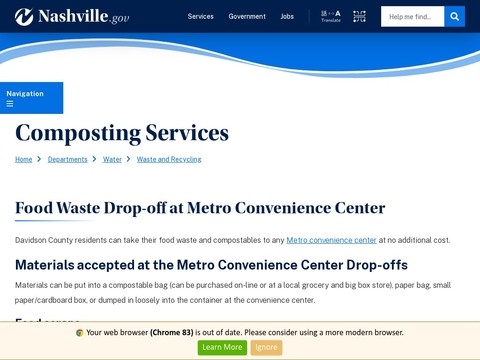
Food Waste Drop-off at Metro Convenience Center
Davidson County residents can take their food waste to any Metro convenience center free of charge.
Materials accepted at the Metro Convenience Center Drop-offs
Materials can be put into a compostable bag (can be purchased on-line or at a local grocery and big box store), paper bag, small paper/cardboard box, or dumped in loosely into the container at the convenience center.
Food scraps
- Fruits, vegetables, spices, and herbs
- Coffee grounds, filters, and tea bags
- Dairy products and egg shells
- Meat, shellfish, fish, bones, and shells
- Pasta, breads, cereals, baked goods, snack foods, and candy
- Leftovers
Paper products
- Soiled napkins, paper towels, cardboard rolls, cotton balls
- Paper plates and cups (including cups from coffee, soda)
- Soiled pizza boxes and paper take-out containers
- Paper egg cartons, liners and other paper food packaging
Other materials
- Cut flowers and household plants
- Dryer lint
- Hair and nail clippings
- Pet food and pet hair
Materials not accepted
- Plastic, expanded foam
- Metal, aluminum foil
- Animal or human waste
- Dryer sheets
Metro Nashville Recycling
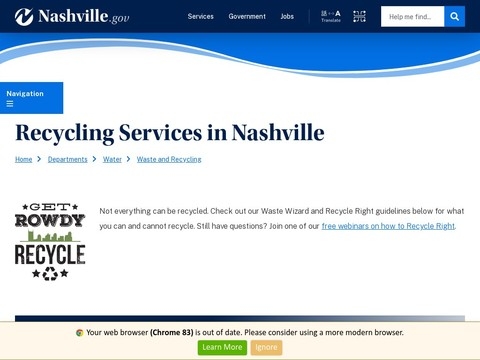
Metro Nashville offers free curbside pick up of recycling in the Urban Services District. For more information - https://www.nashville.gov/Public-Works/Waste-and-Recycling/Recycling.aspx
- Eligible households are allowed up to 3 recycling carts at no cost.
- Recycling is collected once a month.
- On your collection day, place your cart on the curb or alley by 7 a.m. with the arrow on the lid pointing toward the street or alley. Your recycling will be collected between the hours of 7 a.m. and 5 p.m.
- Do not place the cart within 3 feet of any stationary object such as a car, mailbox, utility pole, recycling cart, etc.
- If recycling pick-up is delayed due to inclement weather, your recycling will be picked-up the following Saturday.
See this guide for what to recycle: HowToRecycleRightNashville.pdf
One Tree Planted
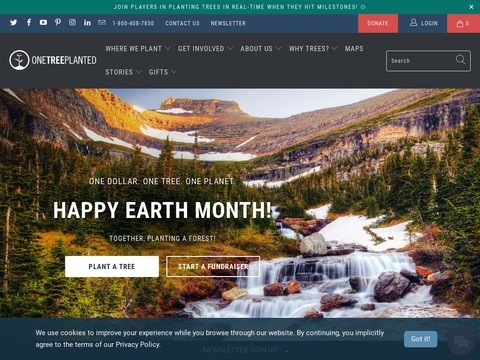
One dollar equals one tree planted. The organization is well on their way to planting 15 million trees on four continents, but their goal is one trillion by 2030! They are working alongside several organizations to massively scale up the restoration of degraded and destroyed ecosystems, during the United Nations Decade on Ecosystem Restoration (2021–2030). Trees have proven to fight climate change, enhance food security, repair soil, and increase biodiversity.
Tony Campolo's Call to Save Creation
This podcast episode features one of America’s most widely known progressive Evangelical Christian thought leaders. Rev. Tony Campolo is professor emeritus of sociology at Eastern University, and he led the Evangelical Association for the Promotion of Education for more than 40 years.
Rev. Campolo has written over 50 books on topics that have educated and challenged his Evangelical Christian audience. He has been ahead of his time on a variety of social issues. In 1992 he published the book “How to Rescue the Earth Without Worshiping Nature: A Christian Call to Save Creation.” In the book, he seeks to help believers see they have a role to play in caring for creation.
Rev. Campolo, who is 85 and has never retired, suffered a stroke in 2020. He is at home recovering with the help of his wife, Peggy. Before the pandemic and his stroke, podcast host Peterson Toscano was fortunate enough to sit down with Tony and ask him about his 1992 book.
Rev. Campolo reveals his frustration with fellow ministers and accuses them of not listening to God’s voice in regard to the mandate to care for creation.
Here is his message: https://www.podbean.com/eu/pb-e5z9y-f64a2a
Water Use Calculator
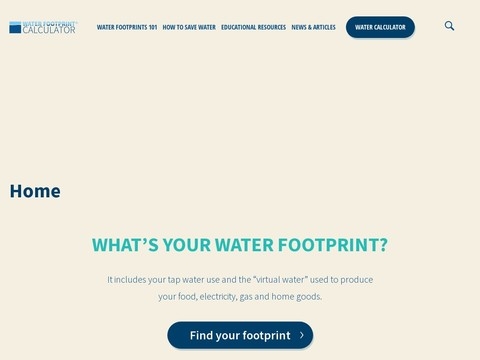
In some regions drought is a harsh reality. Conserving water is important for the planet. Calculate your water footprint with this tool (watercalculator.org) so you have a baseline of usage. The calculator also gives practical tips for reducing use.
array (
'5f46be3bae7c30e431d85fd9' =>
array (
'_id' =>
MongoId::__set_state(array(
'$id' => '5f46be3bae7c30e431d85fd9',
)),
'title' => 'Carbon Calculator',
'virtual_url' => 'carbon-calculator',
'description' => '
Use this tool to determine your carbon footprint.
',
'category' =>
array (
0 =>
array (
'_id' => '625883374c5b61ba5fd8350d',
'_display' => 'Creation Care Outside Resource',
),
),
'remote_url' => 'https://coolclimate.org/calculator',
'status' => 'Active',
'created_by' =>
MongoId::__set_state(array(
'$id' => '5e7ce49e1280b1423668bcfe',
)),
'created_on' =>
MongoDate::__set_state(array(
'sec' => 1598471739,
'usec' => 314000,
)),
'last_updated_by' =>
MongoId::__set_state(array(
'$id' => '5cb8944cd6940304332b01b1',
)),
'last_updated_on' =>
MongoDate::__set_state(array(
'sec' => 1649968004,
'usec' => 439000,
)),
'site_image' =>
array (
'62588390915ae' =>
array (
'index' => 0,
'type' => 'nocrop',
'url' => '/media/image/_p2i_carbon-calculator.jpg',
),
),
'p2i_log' =>
array (
0 =>
array (
'msg' => 'image requested',
'data' => '',
'time' => '15:26:44',
),
1 =>
array (
'msg' => 'request',
'data' =>
array (
'status' => 'processing',
'estimated_need_time' => 50,
),
'time' => '15:26:44',
),
2 =>
array (
'msg' => 'callback_start',
'data' =>
array (
'id' => '5f46be3bae7c30e431d85fd9',
'result' => '{"status":"finished","duration":11,"ori_url":"https%3A%2F%2Fcoolclimate.org%2Fcalculator","image_url":"https%3A%2F%2Fpage2images.b-cdn.net%2Fccimages%2Fe9%2F5f%2FCO4rgJBHyAq9th9b.jpg","left_calls":"14994"}',
0 => 'p2i_callback',
),
'time' => '15:26:56',
),
3 =>
array (
'msg' => 'done',
'data' =>
array (
'error' => 0,
'msg' => '',
'empty' => 0,
'data' =>
array (
'num_selected' => 1,
'num_modified' => 1,
),
),
'time' => '15:26:56',
),
),
'_url' => '/creation-care-education/carbon-calculator',
'_url2' => '/creation-care-education/carbon-calculator',
),
'5f4d102dae7c30ccfaffca6e' =>
array (
'_id' =>
MongoId::__set_state(array(
'$id' => '5f4d102dae7c30ccfaffca6e',
)),
'title' => 'Every Day Eco',
'virtual_url' => 'every-day-eco',
'description' => '
Every Day Eco is a 2-minute read, curated with uplifting news, eco-friendly tips, and global stories in hopes that it will bring you some happiness and inspiration. Only the good stuff! You can send an email to shayne@everyday.eco and ask specifically for Every Day Eco.
',
'category' =>
array (
0 =>
array (
'_id' => '625883374c5b61ba5fd8350d',
'_display' => 'Creation Care Outside Resource',
),
),
'remote_url' => '',
'status' => 'Active',
'created_by' =>
MongoId::__set_state(array(
'$id' => '5e7ce49e1280b1423668bcfe',
)),
'created_on' =>
MongoDate::__set_state(array(
'sec' => 1598885933,
'usec' => 895000,
)),
'last_updated_by' =>
MongoId::__set_state(array(
'$id' => '53addab44c5b61ed3f4348ae',
)),
'last_updated_on' =>
MongoDate::__set_state(array(
'sec' => 1650902787,
'usec' => 30000,
)),
'_url' => '/creation-care-education/every-day-eco',
'_url2' => '/creation-care-education/every-day-eco',
),
'5f46c3a21280b1738b3d43d8' =>
array (
'_id' =>
MongoId::__set_state(array(
'$id' => '5f46c3a21280b1738b3d43d8',
)),
'title' => 'Metro Nashville Composting',
'virtual_url' => 'metro-nashville-composting',
'description' => '
Food Waste Drop-off at Metro Convenience Center
Davidson County residents can take their food waste to any Metro convenience center free of charge.
Materials accepted at the Metro Convenience Center Drop-offs
Materials can be put into a compostable bag (can be purchased on-line or at a local grocery and big box store), paper bag, small paper/cardboard box, or dumped in loosely into the container at the convenience center.
Food scraps
- Fruits, vegetables, spices, and herbs
- Coffee grounds, filters, and tea bags
- Dairy products and egg shells
- Meat, shellfish, fish, bones, and shells
- Pasta, breads, cereals, baked goods, snack foods, and candy
- Leftovers
Paper products
- Soiled napkins, paper towels, cardboard rolls, cotton balls
- Paper plates and cups (including cups from coffee, soda)
- Soiled pizza boxes and paper take-out containers
- Paper egg cartons, liners and other paper food packaging
Other materials
- Cut flowers and household plants
- Dryer lint
- Hair and nail clippings
- Pet food and pet hair
Materials not accepted
- Plastic, expanded foam
- Metal, aluminum foil
- Animal or human waste
- Dryer sheets
Metro Nashville offers free curbside pick up of recycling in the Urban Services District. For more information - https://www.nashville.gov/Public-Works/Waste-and-Recycling/Recycling.aspx
- Eligible households are allowed up to 3 recycling carts at no cost.
- Recycling is collected once a month.
- On your collection day, place your cart on the curb or alley by 7 a.m. with the arrow on the lid pointing toward the street or alley. Your recycling will be collected between the hours of 7 a.m. and 5 p.m.
- Do not place the cart within 3 feet of any stationary object such as a car, mailbox, utility pole, recycling cart, etc.
- If recycling pick-up is delayed due to inclement weather, your recycling will be picked-up the following Saturday.
See this guide for what to recycle: HowToRecycleRightNashville.pdf
', 'category' => array ( 0 => array ( '_id' => '625883374c5b61ba5fd8350d', '_display' => 'Creation Care Outside Resource', ), ), 'remote_url' => 'https://www.nashville.gov/Public-Works/Waste-and-Recycling/Recycling.aspx', 'status' => 'Active', 'created_by' => MongoId::__set_state(array( '$id' => '5e7ce49e1280b1423668bcfe', )), 'created_on' => MongoDate::__set_state(array( 'sec' => 1598472962, 'usec' => 37000, )), 'last_updated_by' => MongoId::__set_state(array( '$id' => '53addab44c5b61ed3f4348ae', )), 'last_updated_on' => MongoDate::__set_state(array( 'sec' => 1650903195, 'usec' => 542000, )), 'site_image' => array ( '6266c8ab0a09c' => array ( 'index' => 0, 'type' => 'nocrop', 'url' => '/media/image/_p2i_metro-nashville-recycling.jpg', ), ), 'p2i_log' => array ( 0 => array ( 'msg' => 'image requested', 'data' => '', 'time' => '11:13:15', ), 1 => array ( 'msg' => 'request', 'data' => array ( 'status' => 'processing', 'estimated_need_time' => 50, ), 'time' => '11:13:15', ), 2 => array ( 'msg' => 'callback_start', 'data' => array ( 'id' => '5f46c302ae7c30433bd85fe2', 'result' => '{"status":"finished","duration":15,"ori_url":"https%3A%2F%2Fwww.nashville.gov%2FPublic-Works%2FWaste-and-Recycling%2FRecycling.aspx","image_url":"https%3A%2F%2Fpage2images.b-cdn.net%2Fccimages%2F8f%2Fbb%2F01Uw87HzRClLALKj.jpg","left_calls":"14986"}', 0 => 'p2i_callback', ), 'time' => '11:13:30', ), 3 => array ( 'msg' => 'done', 'data' => array ( 'error' => 0, 'msg' => '', 'empty' => 0, 'data' => array ( 'num_selected' => 1, 'num_modified' => 1, ), ), 'time' => '11:13:31', ), ), '_url' => '/creation-care-education/metro-nashville-recycling', '_url2' => '/creation-care-education/metro-nashville-recycling', ), '5f4d116b1280b1eb5d50a292' => array ( '_id' => MongoId::__set_state(array( '$id' => '5f4d116b1280b1eb5d50a292', )), 'title' => 'One Tree Planted', 'virtual_url' => 'one-tree-planted', 'description' => 'One dollar equals one tree planted. The organization is well on their way to planting 15 million trees on four continents, but their goal is one trillion by 2030! They are working alongside several organizations to massively scale up the restoration of degraded and destroyed ecosystems, during the United Nations Decade on Ecosystem Restoration (2021–2030). Trees have proven to fight climate change, enhance food security, repair soil, and increase biodiversity.
', 'category' => array ( 0 => array ( '_id' => '625883374c5b61ba5fd8350d', '_display' => 'Creation Care Outside Resource', ), ), 'remote_url' => 'https://onetreeplanted.org/', 'status' => 'Active', 'created_by' => MongoId::__set_state(array( '$id' => '5e7ce49e1280b1423668bcfe', )), 'created_on' => MongoDate::__set_state(array( 'sec' => 1598886251, 'usec' => 238000, )), 'last_updated_by' => MongoId::__set_state(array( '$id' => '53addab44c5b61ed3f4348ae', )), 'last_updated_on' => MongoDate::__set_state(array( 'sec' => 1650916141, 'usec' => 614000, )), 'site_image' => array ( '6266fb4f4b6dc' => array ( 'index' => 0, 'type' => 'nocrop', 'url' => '/media/image/_p2i_one-tree-planted.jpg', ), ), 'p2i_log' => array ( 0 => array ( 'msg' => 'image requested', 'data' => '', 'time' => '14:49:01', ), 1 => array ( 'msg' => 'request', 'data' => array ( 'status' => 'processing', 'estimated_need_time' => 50, ), 'time' => '14:49:01', ), 2 => array ( 'msg' => 'callback_start', 'data' => array ( 'id' => '5f4d116b1280b1eb5d50a292', 'result' => '{"status":"finished","duration":33,"ori_url":"https%3A%2F%2Fonetreeplanted.org%2F","image_url":"https%3A%2F%2Fpage2images.b-cdn.net%2Fccimages%2F47%2F09%2FIelYDThakc9Ky5rG.jpg","left_calls":"14978"}', 0 => 'p2i_callback', ), 'time' => '14:49:34', ), 3 => array ( 'msg' => 'done', 'data' => array ( 'error' => 0, 'msg' => '', 'empty' => 0, 'data' => array ( 'num_selected' => 1, 'num_modified' => 1, ), ), 'time' => '14:49:35', ), ), '_url' => '/creation-care-education/one-tree-planted', '_url2' => '/creation-care-education/one-tree-planted', ), '60186659ae7c308b99c5efa0' => array ( '_id' => MongoId::__set_state(array( '$id' => '60186659ae7c308b99c5efa0', )), 'title' => 'Tony Campolo\'s Call to Save Creation', 'virtual_url' => 'tony-campolos-call-to-save-creation', 'description' => 'This podcast episode features one of America’s most widely known progressive Evangelical Christian thought leaders. Rev. Tony Campolo is professor emeritus of sociology at Eastern University, and he led the Evangelical Association for the Promotion of Education for more than 40 years.
Rev. Campolo has written over 50 books on topics that have educated and challenged his Evangelical Christian audience. He has been ahead of his time on a variety of social issues. In 1992 he published the book “How to Rescue the Earth Without Worshiping Nature: A Christian Call to Save Creation.” In the book, he seeks to help believers see they have a role to play in caring for creation.
Rev. Campolo, who is 85 and has never retired, suffered a stroke in 2020. He is at home recovering with the help of his wife, Peggy. Before the pandemic and his stroke, podcast host Peterson Toscano was fortunate enough to sit down with Tony and ask him about his 1992 book.
Rev. Campolo reveals his frustration with fellow ministers and accuses them of not listening to God’s voice in regard to the mandate to care for creation.
Here is his message: https://www.podbean.com/eu/pb-e5z9y-f64a2a
', 'category' => array ( 0 => array ( '_id' => '625883374c5b61ba5fd8350d', '_display' => 'Creation Care Outside Resource', ), ), 'remote_url' => '', 'status' => 'Active', 'created_by' => MongoId::__set_state(array( '$id' => '5e7ce49e1280b1423668bcfe', )), 'created_on' => MongoDate::__set_state(array( 'sec' => 1612211801, 'usec' => 837000, )), 'last_updated_by' => MongoId::__set_state(array( '$id' => '53addab44c5b61ed3f4348ae', )), 'last_updated_on' => MongoDate::__set_state(array( 'sec' => 1650918936, 'usec' => 522000, )), '_url' => '/creation-care-education/tony-campolos-call-to-save-creation', '_url2' => '/creation-care-education/tony-campolos-call-to-save-creation', ), '5f4d2adaae7c303991ffc9e4' => array ( '_id' => MongoId::__set_state(array( '$id' => '5f4d2adaae7c303991ffc9e4', )), 'title' => 'Water Use Calculator', 'virtual_url' => 'water-use-calculator', 'description' => 'In some regions drought is a harsh reality. Conserving water is important for the planet. Calculate your water footprint with this tool (watercalculator.org) so you have a baseline of usage. The calculator also gives practical tips for reducing use.
', 'category' => array ( 0 => array ( '_id' => '625883374c5b61ba5fd8350d', '_display' => 'Creation Care Outside Resource', ), ), 'remote_url' => 'https://www.watercalculator.org/', 'status' => 'Active', 'created_by' => MongoId::__set_state(array( '$id' => '5e7ce49e1280b1423668bcfe', )), 'created_on' => MongoDate::__set_state(array( 'sec' => 1598892762, 'usec' => 881000, )), 'last_updated_by' => MongoId::__set_state(array( '$id' => '53addab44c5b61ed3f4348ae', )), 'last_updated_on' => MongoDate::__set_state(array( 'sec' => 1650919024, 'usec' => 324000, )), 'site_image' => array ( '6267067989c35' => array ( 'index' => 0, 'type' => 'nocrop', 'url' => '/media/image/_p2i_water-use-calculator.jpg', ), ), 'p2i_log' => array ( 0 => array ( 'msg' => 'image requested', 'data' => '', 'time' => '15:37:04', ), 1 => array ( 'msg' => 'request', 'data' => array ( 'status' => 'processing', 'estimated_need_time' => 50, ), 'time' => '15:37:04', ), 2 => array ( 'msg' => 'callback_start', 'data' => array ( 'id' => '5f4d2adaae7c303991ffc9e4', 'result' => '{"status":"finished","duration":8,"ori_url":"https%3A%2F%2Fwww.watercalculator.org%2F","image_url":"https%3A%2F%2Fpage2images.b-cdn.net%2Fccimages%2F04%2F3b%2F4sDWOUP6TzqTUymk.jpg","left_calls":"14955"}', 0 => 'p2i_callback', ), 'time' => '15:37:13', ), 3 => array ( 'msg' => 'done', 'data' => array ( 'error' => 0, 'msg' => '', 'empty' => 0, 'data' => array ( 'num_selected' => 1, 'num_modified' => 1, ), ), 'time' => '15:37:13', ), ), '_url' => '/creation-care-education/water-use-calculator', '_url2' => '/creation-care-education/water-use-calculator', ), )

